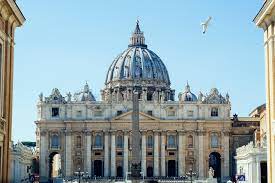Apart from the Eucharist, perhaps the most central term in the Church is authority. Even the doctrine of the Eucharist flows from the authority Jesus gave to his apostles (by extension to priests) to consecrate bread and wine to become His body and blood. Today and in the coming weeks, I will explore the nature and dynamics of authority in the Church.
As most countries in the world have adopted a form of democratic governance and, as active citizenship has reached unprecedented levels across the globe, there have been more calls, especially in the West, to democratise the Church. Scholars such as Pope Benedict XVI and Hans Maier had written in defence of the Church’s structure when this issue emerged in Germany in the 1970s. Why is the issue of authority topical today? The paradigm shift from authority to autonomy, empowerment, and participation.
Autonomy means that one seeks to be independent and be able to do what they want to do without recourse to another. Empowerment provides the capacity and ability to be independent, while participation entails that people want to get involved in decisions that affect their lives. While these values are good, does it mean that the Church should jettison its structure to adopt democracy?
The major difference between the governance structure of the Church and democratic institutions is the source of authority.
Constitutions of democratic countries often begin with the phrase – “We the people of X” (‘under God’ is added if it is not a secular state). For instance, the preamble of the Nigerian constitution states:
“We the people of the Federal Republic of Nigeria
Having firmly and solemnly resolve, to live in unity and harmony as one indivisible and indissoluble sovereign nation under God, dedicated to the promotion of inter-African solidarity, world peace, international co-operation and understanding…Do hereby make, enact and give to ourselves the following Constitution”.
In other words, it is the people who own the constitution and provide the source of power from which the arms of government function. On the other hand, the Church is the body of Christ and Christ is the head of his body, therefore, Christ is the source of authority (cf. Col 1:18).
Christ willed the current structure of governance in the Church through the decisions he made while on earth. Although he selected twelve apostles, he still chose only Peter to be the head of the Church he was to establish. (Matt 16:18-20). By doing so, he willed that authority in the Church flowing from him should be top-down rather than bottom-up as in a democracy. While the people, through a referendum or vote of their representatives, decide on the constitution and can impose anything they desire, the deposit of faith is the source of the Church’s law, and not even the pope can change expressly divinely established ordinances.
Yet, we cannot say that the Church authority model is monarchical because, through baptism, the Pope, other clergy and the laity constitute the people of God, and participate, each according to his or her state in life, in the priestly, prophetic and kingly office of Christ (cf. Can. 204 §1). Therefore, unlike in a monarchy, there are no aristocrats and commoners. Being a cleric or a religious is a privilege Jesus confers; that is why it is a vocation. We recall that after casting away demons from a demoniac, Jesus refused the demoniac’s request to be his disciple (Mark 5:18-19).
Moreover, Church authority is not hereditary. In fact, the law forbids family members from occupying some positions. For instance, the law provides that one cannot be a Vicar General, Episcopal Vicar or a member of the finance committee if he is related to the bishop up to the fourth degree of consanguinity and affinity (Cann. 478 §2, 492 §3).
In the same way, Church authority is neither oligarchic, gerontocratic nor dictatorial because Christ never willed it. Christ calls everyone towards holiness (Matt 5:48; Can. 210) and the promotion of the gospel, each, according to one’s state in the Church (Can. 211).
May God continue to help us.🙏🏾
K’ọdị🙋🏾♂️
